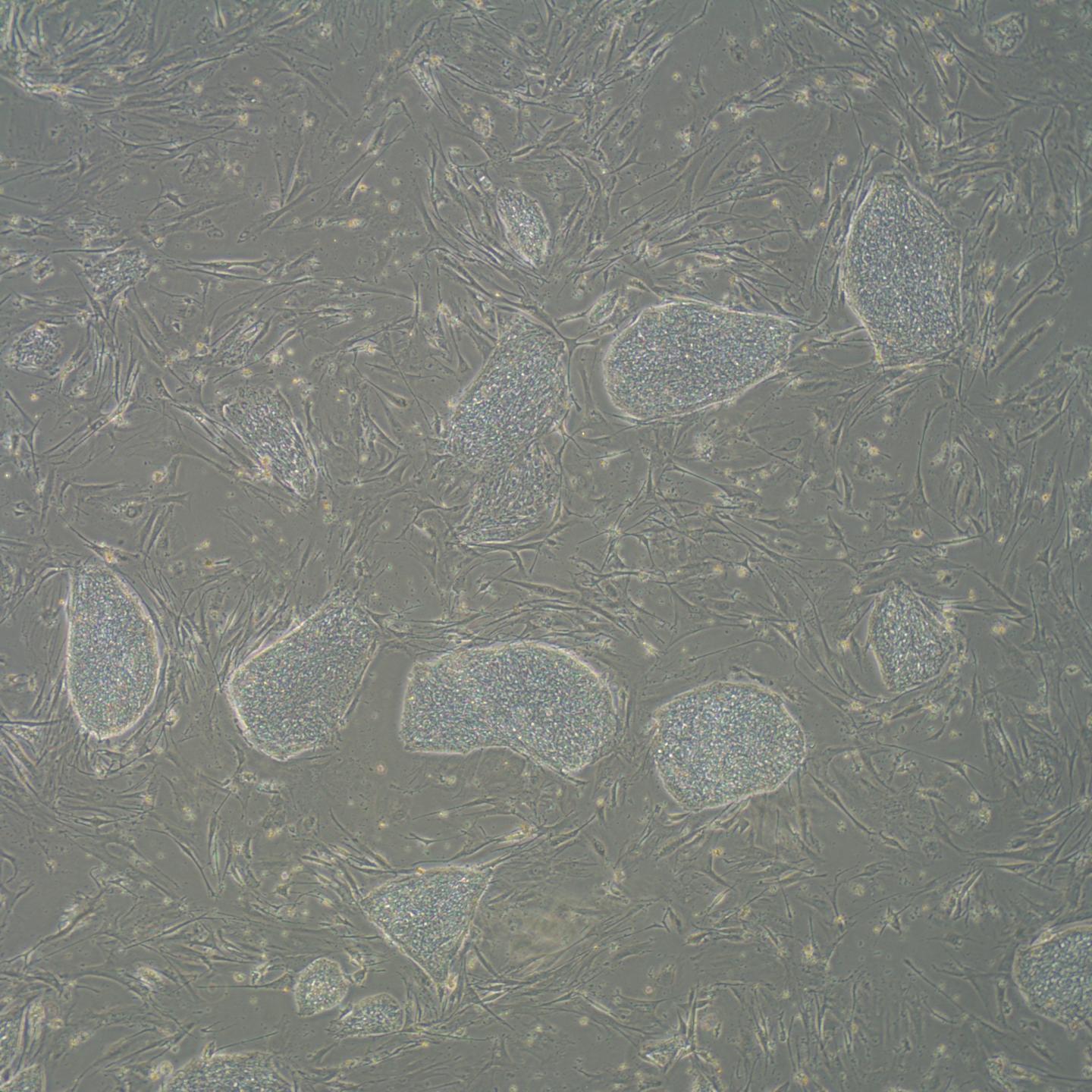A centralized, high-quality bank of stem cells will help researchers better understand Prader Willi Syndrome

Credit: Yaling Liu/UConn
A new collaboration between UConn Health and the Foundation for Prader-Willi Research will create a centralized, high quality biobank of stem cells to help researchers better understand Prader-Willi syndrome, a rare genetic disease that may hold insights into obesity, developmental delays, autism spectrum disorders, and many other conditions.
The foundation (FPWR) and the UConn-Wesleyan University Stem Cell Core will jointly support the biobank of induced-pluripotent stem cells for Prader-Willi syndrome. These special stem cells are made from adult cells, and they have the potential to grow into any bodily tissue, including skin, stomach, brain, blood, and more. The biobank will be able to supply induced-pluripotent stem cells for Prader-Willi syndrome to researchers throughout the world.
Prader-Willi syndrome occurs in approximately 1 in 15,000 to 30,000 births. It’s caused when certain genes that are normally found on chromosome 15 are missing or not working. Chromosomes are the structures in which our cells organize DNA; humans are supposed to have 26. Normally we inherit two copies of each chromosome, one from our mother and one from our father. Sometimes we only need one copy of each gene, and so one copy is active and one is turned off. In most individuals with Prader-Willi syndrome, certain genes on chromosome 15 that should be specifically expressed from our father’s chromosome are missing. Geneticists don’t understand why, but the mother’s version of these genes is always turned off.
It’s these genes, and how their absence affects the rest of the genome’s and cells’ functions, that researchers will be able to investigate thanks to the biobank. Researchers will be able to use the induced-pluripotent stem cells to look for potential therapies for Prader-Willi syndrome. They may also be able to use the cells to explore the genetic and biomolecular basis of some of the syndrome’s symptoms, such as sleep disorders, developmental delays, and disordered eating.
UConn will host the centralized repository in the Stem Cell Core on the UConn Health medical school campus. Each Prader-Willi syndrome induced-pluripotent stem cell sample provided through the biobank will have undergone a select set of validation assays. It will help facilitate research on cellular phenotypic abnormalities in Prader-Willi syndrome, and ensure that precious research dollars are not spent re-creating stem cell resources that may already exist.
“The objective of FPWR’s translational research program is to reduce the amount of time and resources needed to move therapeutic studies forward,” says Nathalie Kayadjanian, director of translational research at FPWR. “Stem cells stored at the UConn Core will provide Prader-Willi syndrome researchers and pharmaceutical companies pursuing Prader-Willi syndrome therapeutics high quality cellular resources to perform robust experiments in a timely manner.”
Stormy Chamberlain, associate professor of Genetics and Genome Sciences at UConn Health, says, “These banked Prader-Willi syndrome cells represent a building block for the development of cell-based assays for future high-throughput drug screening to accelerate the development of new therapeutics for Prader-Willi syndrome.”
Currently the Prader-Willi syndrome biobank has two cell lines, one with a deletion of certain genes on the father’s copy of chromosome 15, the other with two copies of chromosome 15 from the mother and none from the father. Both cell lines were contributed by Chamberlain and Marc Lalande, UConn Health researchers who study Prader-Willi syndrome and its sibling genetic disorder Angelman’s syndrome. More cell lines will be banked at the facility within the next years. Details on the cell lines currently banked, as well as the validation and quality control package that is available to characterize these lines, is available at http://www.
###
About the Foundation for Prader-Willi Research (FPWR)
FPWR is composed of thousands of parents, family members, researchers, and others who are interested in addressing the many issues related to Prader-Willi syndrome, including childhood obesity, developmental delays, psychiatric disorders, and autism spectrum disorders. The mission of FPWR is to eliminate the challenges of Prader-Willi syndrome through the advancement of research and therapeutic development. FPWR supports cutting-edge research studies around the world to advance the understanding of Prader-Willi syndrome, and collaborates with research institutions, pharmaceutical companies and the FDA to advance new treatments that will help those with Prader-Willi syndrome. To date, FPWR has funded over $12 million in Prader-Willi syndrome research. For more information, visit https:/
About the UConn-Wesleyan University Stem Cell Core
The UConn-Wesleyan University Stem Cell Core provides a central source of technologies and materials for research on human embryonic stem cells and induced-pluripotent stem cells. The Core supports the Connecticut Stem Cell Initiative and provides support, training, and research materials to scientists throughout the state and beyond.
Media Contact
Kim Krieger
[email protected]
Original Source
https:/



